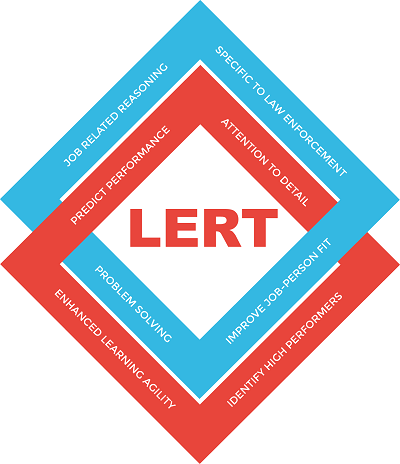Reasoning and cognitive ability are essential elements to working effectively in law enforcement. Situations arise in which those in law enforcement have to think quickly, solve complex problems, and use limited information to make decisions. The Law Enforcement Reasoning Test is an ability test that measures an individual’s ability to reason, problem solve, learn new concepts, understand complex relationships, and work with spatial information. It has been carefully designed to be highly relevant for law enforcement jobs (police officers, state troopers, conservation officers, etc.) that typically require a two-four year post-secondary degree. Extensive research has been invested to ensure the test is job-related and represents the type of reasoning and cognitive abilities required of employees to perform the job.
